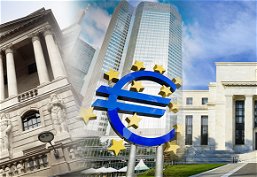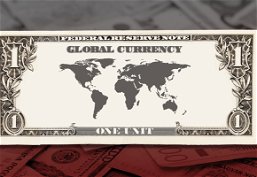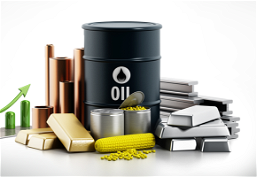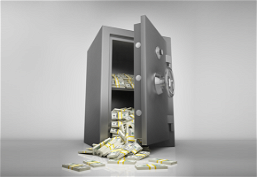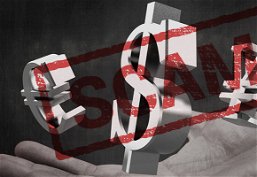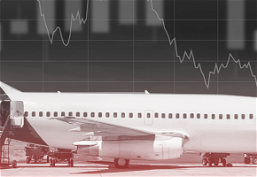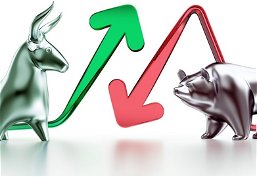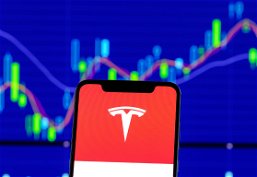Blog
We provide you with the latest market news in a simple and fun way through our blogs which you can read on your smart device wherever you are!
How Do Central Banks Combat Inflation?
Have you ever wondered why central banks seem extremely concerned about inflation? Why is it so important to keep it in check and how do they do so? In this article, we will tap into how central banks combat inflation and their go-to tools for the job.
2023-08-14 Read Article
Asia's Diverse Population: How Could it Affect Investing?
The world’s biggest continent in population and size has something that the western world lacks and yearns to possess, which is the right demographics. Read about what the latest studies tell us about Asia’s demographics and how it could produce gigantic economies out of its nations.
2023-08-14 Read Article
Chinese Nationalism and Global Brands
How was Chinese nationalism able to throw powerhouse brands such as Nike, Adidas, and Nestle off their balance so easily? This article will dive into how things worked within the Chinese economy throughout the decades, crossing paths with the emergence of Western brands.
2023-08-14 Read Article
Could a Big Mac Meal Measure the Value of Currencies?
Have you ever thought it possible for the value of your country's currency to be measured in relation to a burger sandwich? Or for it to indicate your nation's Net National Income (NNI)? In this article, we will take a closer look at the Big Mac Index, the most comical indicator in the realm of financial markets.
2023-08-14 Read Article
What if there was Only One Currency?
There are 180 official currencies in the world used by people to fulfill their financial transactions. But why don’t we have one currency only? Read this article to find out what would be the pros and cons of adopting one global currency.
2023-08-14 Read Article
From Streaming to Gaming: Will Netflix Win the Gaming Race?
With its latest announcement of acquiring Hextech Mayhem, Netflix confirms once again that its venture into the gaming industry is no laughing matter. Read on for a quick outlook into Netflix's efforts in this field.
2023-08-14 Read Article
What are Market Bubbles?
Bubbles are market phenomena that can set fear in the hearts of the most experienced and knowledgeable traders. Bubbles also happen to be innate to the modern economic system. Read on to have a deeper understanding of them.
2023-08-14 Read Article
El Niño and La Niña: Two Natural Events Affecting the Market
El Niño and La Niña are two of the most influential non-market factors largely affecting financial markets and the global economy, yet few traders pay them attention. Read this article to know more about the natural events forcing markets to play on their terms.
2023-08-14 Read Article
The Great Resignation: Why Do Many Quit Their Jobs During COVID-19?
The most unexpected turn of events during the pandemic was probably people quitting their jobs en masse while the world was going through a global economic crisis with unprecedented inflation rates, leading to “The Great Resignation”. Read more to know more about the repercussions of it.
2023-08-14 Read Article
Is the Metaverse Here Yet?
The term Metaverse is not new as it was first incepted in 1992, but the interest around it has been recently reignited with Facebook changing its name to Meta, declaring itself a forerunner in enabling a Metaverse awakening. Read this blog to know more about how Metaverse could change our lives.
2023-08-14 Read Article
What are Central Banks?
Anyone interested in market analysis has surely wondered; what do central banks do, and do they utilize any tools to regulate markets? Read this article to learn more about the central banks’ line of work and the tools they use to control the market.
2023-08-14 Read Article
Importance of Investment Portfolio Diversification
Since its conception, diversification has been considered one of the most important ideas in financial markets. Read on to find out more about how diversification will help you save your money.
2021-09-27 Read Article
The World’s First Trillionaire
The past few years have seen the list of the world’s richest people change substantially. There are multiple factors as to why this happened. Read on to know who will be the first trillionaire in the world.
2021-09-13 Read Article
All you Need to Know about Coinbase as a Crypto Trader
Read in this blog post about all the essential information you need to know about the crypto exchange company Coinbase.
2021-04-18 Read Article
What are Swaps in Trading Forex and other Financial Instruments?
Read our blog post if you want to know more about the meaning of swaps in trading forex and other financial instruments.
2023-08-14 Read Article
Leverage in Forex and other Financial Instruments
What is Leverage? And how to use leverage when trading in forex or any other financial instrument. Find out more in this blog post.
2023-08-14 Read Article
6 Steps to Trade Forex and other Financial Market Instruments
Read this blog post to learn about the necessary steps to trade in the forex market and other financial markets and instruments.
2021-01-31 Read Article
Avoid Scams by Trading with INGOT Brokers
With new brokerage firms popping up every day, determining the legitimacy of a broker can be a real challenge. Keep reading to find out how INGOT Brokers is not a scam.
2021-03-29 Read Article
How to Avoid Scammers in Forex?
Is forex a scam? Read our blog to find out all you need to know to avoid scammers in forex. With these tips to look out for you will be safe from any forex or trading scammers.
2021-01-13 Read Article
All you Need to Know about Cryptocurrency
What is cryptocurrency? And what is the history of it? Find out all you need to know about cryptocurrencies and how to buy or trade them by reading this blog post.
2021-01-11 Read Article
Trading Mistakes every Trader should Avoid
The volatility of the market makes it more exciting to traders, which can be a trap because of greed takeover. Some traders fall victim to making one or several of the following mistakes.
2023-08-14 Read Article
What is Forex?
Foreign exchange, commonly known as Forex, is a decentralized, virtual marketplace where derivatives are traded with no physical exchange of money from one party to another. Learn more by reading this blog post.
2023-08-15 Read Article
Airline Stocks: is it a Market Opportunity?
The airline industry is considered to be a crucial part of the economy. Read in this blog about the four company stocks that dominated the market share of leading U.S. airlines for the last year.
2021-01-07 Read Article
Highest Paying Dividend Stocks in 2020
Many investors take into account the highest paying dividend when taking their decisions. Read in this blog about the best dividend stocks to buy and hold in 2020.
2021-01-07 Read Article
Reasons behind the Rise of NIO Stock
NIO is a relatively young Chinese electric vehicle manufacturing company founded in 2014 in Shanghai. It makes well-made electric cars and SUVs, and its stocks are rising. Find out why and read this post.
2021-01-07 Read Article
OPEC and Oil Prices
The Organization of the Petroleum Exporting Countries (OPEC) is a permanent intergovernmental organization of 13 nations. Read our blog to learn about the impact of OPEC on oil prices, and the expectations for 2021.
2021-01-07 Read Article
Is Tesla a Rational Stock to Invest in?
As more investors have been interested in the American electric vehicle and clean energy company, Tesla, the risk factor is still unclear to most of them. Read in this blog about Tesla's stock, and how it is doing compared to other companies.
2021-01-07 Read Article
The Vaccine Race: Top Pharmaceutical Stocks Working on the Vaccine
Finding a Covid-19 vaccine is the best way to win the battle against the pandemic, and pharmaceutical companies around the globe realize this. In this blog, you will read about top pharmaceutical companies working on the vaccine, and how it affects their stocks.
2021-01-07 Read Article
Which Trading Style Is Best For You?
Like every other trader, whether you are a novice or seasoned trader, you have your own unique trading style. Understanding your trading style is a critical part of your success.
2023-08-15 Read Article
How to Choose the Best CFD Broker?
Are you looking for the best financial broker, but unsure as to what factors you should be looking out for? Here, we go over the key qualities you should look for to help best determine what CFD broker will fit your needs. Let us begin.
2021-01-07 Read Article
What is Forex Trading ? | INGOT Brokers
Forex, also known as Foreign Exchange, or Currency Trading, is a decentralized global market where traders can buy and sell currencies.
2021-01-07 Read Article
5 Terms Every Trader Should Know
Trading in the markets and navigating financial concepts can seem daunting at first, but once you wrap your head around these concepts, you will be ready to get going in your trading journey.
2021-01-07 Read Article
Here's How to Trade Smart During the Coronavirus Outbreak
The COVID-19 outbreak has brought nothing but uncertainty in the stock market as fears around the virus spread across the global economy. Here's how you can take advantage of the current situation.
2021-01-07 Read Article
3 Popular Trading Myths You Need to Stop Believing Now
While there are many trading myths out there, we’ll look at 3 popular myths that can affect every stage of development- from why people get involved in trading to developing a trading system.
2021-01-07 Read Article
Here’s What You Need to Know About Leverage in Trading
Leveraging is one of the most powerful tools traders have in their hands if they learn how to keep their risks in check.
2021-03-26 Read Article
Top Five Attitudes of Successful Traders
Your attitude toward trading makes a huge difference in your success. What kind of attitude and thinking that's needed to become a successful trader?
2023-08-16 Read Article
Bullish vs. Bearish: What's the Difference?
You’ve probably heard investors refer to a market as being either bearish or bullish based on negative or positive price movements. But what does it mean?
2023-08-16 Read Article
4 Components of a Winning Trading Plan
Perhaps one of the most important aspects of trading in the financial markets profitably is having a comprehensive trading plan. In this article, we will go through four key components to creating a successful trading plan.
2021-01-07 Read Article
Is Demo Trading Really Worth It?
If you demo trade the right way, you can prepare yourself for when you start trading with real money. Here’s why.
2021-01-07 Read Article
How To Regain Your Confidence In Trading
When it comes to trading, the way we react to a loss is far more important than the loss itself. Here are three essential things you can do immediately to rebuild your confidence in trading and get yourself back on track.
2021-01-07 Read Article
Top Market Themes of 2020
Will the trends we observed in 2019 continue in 2020? Here we look at the major economic and political events that could shape up the global economy this year.
2021-01-07 Read Article
The three key things to watch in the Oil Market for 2020
2019 was an eventful year for the oil and gas industry. Let’s take a look at the key factors that can move this market in 2020.
2021-01-07 Read Article
Here's How to Achieve Your Trading Goals in 2020
The New Year brings with it great hope for change and self-improvement. We've put together essential tips to boost your motivation for achieving great trading results in 2020.
2021-01-07 Read Article
What is a Contract for Difference?
For almost three decades now, CFD Trading has been taking the financial world by storm. Let’s take a look at some of the highlights of CFD Trading to understand where things stand today.
2021-01-11 Read Article
Why Diversification Matters for Your Portfolio
Ever heard the saying about not putting all your eggs in one basket? well, this same analogy applies to the management of your investment portfolio.
2021-01-07 Read Article
The #1 Skill Required to Succeed in Trading
“Patience is a virtue” is a phrase many of us have heard throughout our lives. When it comes to trading, patience is a trader's top virtue.
2023-08-16 Read Article
4 Golden Rules to Follow When Getting into Online Trading
Trading in the financial markets can be challenging at times and as such becoming a successful trader requires continuous education and diligent practice. We’ve gathered 4 golden rules to help you start off your online trading journey on the right foot.
2023-08-16 Read Article
The Boeing Company: A year of instability and price fluctuations
The Boeing Company, together with its subsidiaries, is the world's largest aerospace company that designs, develops, manufactures, sales, services, and supports commercial jetliners, military aircraft, satellites, missile defense, human space flight and launch systems, and services worldwide.
2023-08-16 Read Article
3 Common Fears in Trading and How to Conquer Them
Fear is perhaps the most significant emotion for traders. There are three types of fear that arise when trading, and you would encounter them at one point or another.
2023-08-16 Read Article
How to Recover from Forex Losses?
Forex trading is a two-way road. One goes up the hill and the other goes down. The way up was bright and shiny. The way down was dark and grim.
Read this blog to find out more about recovering from forex losses.
2021-01-11 Read Article
Three Facts to Consider Trading Facebook Stock
There’s no doubt that Facebook is one of the world’s social media giants. Its far-reaching presence now influences the lives and preferences of millions of people across the globe. Read in this blog a brief overview of the social media giant in numbers.
2021-01-11 Read Article
Here's What You Need to Know About Tesla
Founded in 2003, Tesla is an innovative automotive and energy company taking on the mission to accelerate the world’s transition towards clean energy by manufacturing emission-free electric vehicles.
2021-01-07 Read Article

